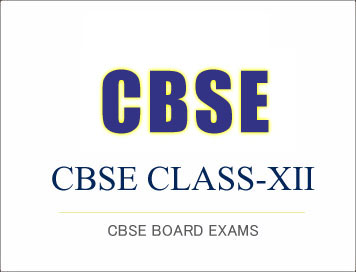(Download) CBSE Class-12 Sample Paper (Fashion Studies) 2014-15
Disclaimer: This website is NOT associated with CBSE, for official website of CBSE visit - www.cbse.gov.in
(Download) CBSE Class-12 Sample Paper (Fashion Studies) 2014-15
SECTION – A
Q. 1 Define the term ‘apparel’. 1
Q. 2 Why darts need to be finished away from the apex? (Give one reason) 1
Q. 3 Name the equipment used to finish the raw edges of the fabric. 1
Q. 4 Write two examples of men’s active sportswear category. 1
Q. 5 What is the difference in the front and back dart length of a basic skirt? 1
Q. 6 Why are buttons recommended to be inbuilt into the garment of newborn’s clothing? 1
Q. 7 State the general rule followed to decide the size of the button-hole. 1
SECTION – B
Q. 8 Compare the tradition of wearing neck brass rings and poulaine by primitive people. 2
Q. 9 “With the change in the techniques of warfare, armours are replaced with uniforms which enable two functions.” Explain briefly. 2
Q. 10 What is pattern making? Name two methods of achieving it.
OR
Differentiate between Fitting Ease and Design Ease. 2
Q. 11 Who is known as the ‘Father of the modern fashion design´ and what is his contribution in making Paris as the epitome of fashion clothing? 2
Q. 12 Explain the efficient way of placing the pins for securing fabric. 2
Q. 13 How is dart manipulated by using pivot method? 2
Q. 14 Explain the manner of draping uttariya by the courtiers in ancient times in India. 2
Q. 15 Differentiate between natural and synthetic fibres. 2
SECTION – C
Q. 16 Mention any 6 points to be included on the pattern. 3
Q. 17 Prepare a chart of designers / costume designers along with the names of their most recognisable movies through which they have made an influence on fashion industry. 3
Q. 18 How will you identify the right side of the following
fabrics? Explain.
a) Smooth fabrics
b) Printed design
c) Textured fabrics 3
Q. 19 What are the two most important measurements required to make square and ‘v’- neckline? Explain with the help of a diagram. 3
Q. 20 Describe the term “silhouette”. Name four different shapes of women’s wear garments. 3
Q. 21 Esha purchased a readymade Jeans and T-shirt from the
market. After some days, she faced the following problems.
a) Waistline binds & rolls.
b) Button closure to gape open
c) Diagonal wrinkles in the crotch
d) Pockets open in the hip and thigh area.
e) Neckline does not lie flat.
f) Sleeves pull across and cause wrinkles.
Elaborate upon the reasons for the same. 3
Q. 22 What are Linear trims? Name the types.
OR
Suggest some fabrics preferred for men’s shirting, trousers & suiting and casual wear. 3
Q. 23 “It is wise to observe several principles to achieve success with any garment, whether it is sleeveless or made with sleeves.’ Mention any three principles. 3
Q.24 What is a French placket? Write any four criteria on which the type and length of placket selection depends. 3
SECTION-D
Q25 Discuss five mechanical inventions related to textile industry during industrial revolution.
OR
“It should be noted that Indian heritage and tradition has been so deep rooted that new influences bring about only a limited amount of change in culture.” In this context discuss evolution of modern Indian fashion from 1900’s -1950’s. 5
Q26 How will you take the following measurements on a dress
form/human-figure?
a) Full sleeve length
b) Centre front length
